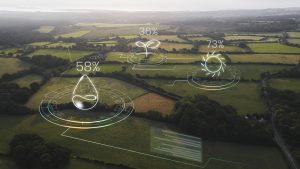
DEvelopment of professional Skills for the use of Urban solid Wastes and Organic Wastes in agricultural
In line with the rapidly growing population, the demand for energy and waste disposal is growing day by day. To overcome waste disposal and greenhouse gas emissions, the only solution is alternative energy production from biomass, agricultural and organic fraction from municipal solid waste (MSW). Biomass energy production can create new employment opportunities, increase incomes and support rural development. In 2012 Europe’s biomass energy sectors generated a total turnover of at least €33 billion and employed more than 374,800 people. The EU’s biomass energy sector is a major contributor to the EU’s energy policy.
The European Commission believes that biomass energy can play an important role in achieving Europe’s 2020 targets. The EU RED (2009/28/EU) sets a binding target of 20% of final consumption of energy from renewable sources by 2020. The share of renewable energy from biomass in electricity consumption will be 250 TWh in 2020. In the EU, the total value of RES will be 1370 TWh. To achieve this, EU countries have committed themselves to achieving their own national renewable energy targets. HORIZON 2020 has also focused on 2020.In future Commission scenarios, energy production from biomass will almost double in 2030 ([SWD (2014) 259]). The Energy Roadmap 2050 aims to reduce greenhouse gas emissions to 80-95% by 2050. However, due to technological and economic constraints, the use of biomass for energy production is currently not widely used in Europe.
DESUWOW’s objectives are:
– Identify and analyze targeted needs and competences
– Development of an innovative and modern training programme and programme
– Carrying out a set of targeted pilot trials and transferred e-learning content
– Developing new professional skills related to biomass energy
– Promoting the EU’s RES demands
– Awareness-raising and transfer of innovation for the re-use of waste in the EU
– Promoting innovation, entrepreneurship and employment in rural areas – supporting the improvement of the quality of life in rural areas and reducing migration
– Promoting environmental awareness
There is a great opportunity for the project to develop a life-long partnership between UK, TR, BE, BG and PT and to transfer good practices and innovation in the field of renewable energy sources from biomass, in particular strategies for waste management and the use of waste on a profitable farm and in a clean urban environment.
OUTPUTS
O1 Training Kit
O2 Handbook